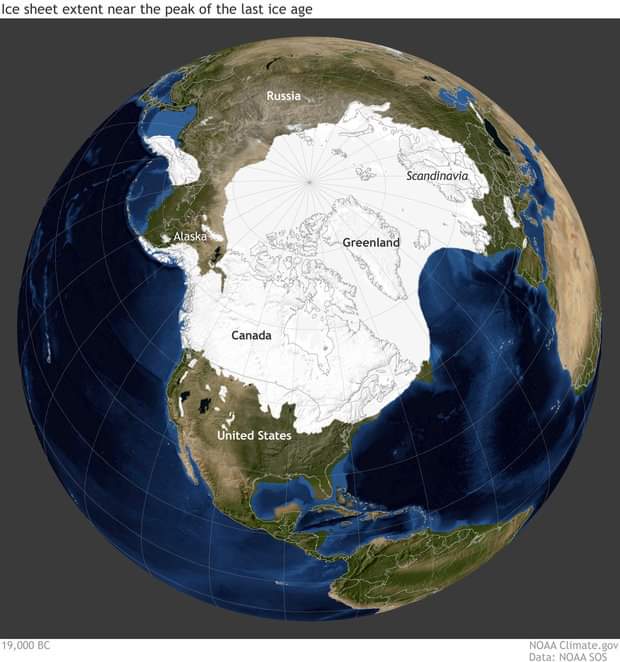The Current State of Criminology:
A Brief Essay (Taken from Chris Eskridge, The Current State of Criminology, Revista Capitulo Criminológico, Vol. 32(4), October-December 2004, pp. 415-432. Translation by Verónica Lizbeth Martínez Moncada; revised by Christopher Birkbeck) ABSTRACT Although the evolution of crime and deviance responds to the dynamics of global social, economic and political events, it is possible that criminology has a positive impact on this field. To achieve this goal, it will be necessary to develop interdisciplinary courses in criminology and criminal justice around the world, adopt programs and policies based on the systematic collection and evaluation of evidence, and become effective criminologists - not only scientifically, but also in the political world. Currently, criminology is not a mature discipline and we are not sure how to respond to the crime problem. We lack accurate diagnostic tools, a definitive body of knowledge, an understanding of cause and effect, and a generally consistent set of treatment modalities. In this sense, criminologists are somewhat like the doctors of the eighteenth century. FOREWORD Although I believe that crime and deviance are important subjects of study, it is impossible to separate them from contemporary social and political events. Viewed from this perspective, frankly our field of study verges on the insubstantial. "Events have saddled up and lead mankind," said Abraham Lincoln. Scary warnings of possible detonations of weapons of mass destruction in large urban centers, the invasion of other countries by the United States, the significant interruption of world oil supplies, among other possible catastrophic events, will have a greater influence on crime and diversion global than any preventive model that I, or any other criminologist, can propose.
At present, the obvious global concern is that we seem to be slipping into a clash of civilizations:
While the current US presidential administration seems to have toned down its actions of late, basic attitudes are clearly unchanged, and certainly not atypical of the views of religious fanatics around the world; Islamic, Christian, Jewish and Hindu, each convinced of their unique legitimacy. Many believe that they have a divine mandate, and face the world in Manichaean terms – the good guys against the bad guys. Many have projected themselves as messianic figures in the war against evil, with little or no understanding of, or concern for, facts and feedback, complexity and negotiation. Of course, in such a battle, fact and reason have no place - we need only consult the history of Medieval Europe to see the result of this kind of thinking. There are clamoring voices emerging from all sides, and while many of them try to approach the matter in a religious way, I would propose a different perspective. I believe that the fight is not to pit one religion against another for its own sake, but rather that it is preferable to give greater weight to reason than to fanaticism, to condescension against consideration, and tolerance against callousness. The political winds, in fact, are easier to feel than to predict, and obviously the final battle of this contest is to be fought. At this juncture, however, there is a somewhat dire prospect for the future, unless the voices of moderation are heard above the battle. It is in the best interests of contemporary civilization to see such voices of moderation truly amplified. To the extent that this occurs, and to the extent that the caustic cocktail of fundamentalism and fanaticism gives way to tolerance and stability, criminology and criminologists will once again be able to "do their job."
INTRODUCTION:
Occasionally it is helpful to stop briefly and survey things to determine where we are and to consider where we need to go. Academic criminology has perhaps a greater need than other disciplines to indulge in such introspection, given its somewhat complicated history. We trace our intellectual roots back to those who would be classified as philosophers (Beccaria), doctors (Lombroso), lawyers (Blackstone), sociologists (Durkheim), psychologists (Garófalo), and political scientists (Vollmer). And as in Aesop's proverbial elephant myth, the criminologist is a combination of all these, but none of them in their entirety. At the dawn of the 21st century, criminology has become something different, something absolutely unique that tends to incorporate almost all other disciplines in one way or another. Criminology is also a dose of contemporary political and social reality, and from this spring new ideas and notions flow endlessly. The purpose of this essay is to examine the current state of criminology, and to propose a model for future growth and development. CRIME REDUCTION At the outset, I declare that I subscribe to the principles formulated by Emile Durkheim a century ago (Durkheim, 1971). I specifically adhere to your rule on the constancy of delinquency – there will always be behavior that society defines as irregular, unacceptable, or criminal. Furthermore, in the general and longitudinal context, we cannot reduce the scope of the crime. It is omnipresent. From time to time, I hear politicians talk about the need to undertake one policy or another to "eliminate" crime. However, we cannot eradicate crime any more than a doctor can eradicate death. Like a medical doctor, however, criminologists can develop preventive and curative responses that can positively affect current problems.
For example:
it is absolutely evident for this author that if the control of the use of firearms were instituted in the United States, there would be few murdersf
(1)Few murders?
you might wonder. That's a reduction in crime. Instead, the situations would play out like this… two people would get into an argument, but since there is no weapon available, they would grab a knife or a sledgehammer. They could still kill, but a knife or a sledgehammer definitely has a low killing ability, and the victim would have a better chance of living. The result – a decrease in murders and an increase in serious injuries: the level of crime is maintained but its severity decreases. This is what modern criminology should be about; find the programs, policies, and procedures that can reduce the severity of crime
REDUCING THE SEVERITY OF CRIME:
How do we reduce the severity of crime?
An overview study sponsored by the United States Congress concluded that we simply don't know (Sherman et al., 1997). Some programs and policies seem right, others are clearly ineffective, but we're not sure why, in either case. We have not been able to cross the barrier of cause and effect with any degree of safety. But what we have concluded is that there is now a model that we must abide by and that will eventually put us on the path that will lead us to answer the question. That model has three components: A. Expand courses in criminal justice/criminology in universities around the world, and particularly in developing countries or nations or in transition. B. Adopt an interdisciplinary perspective on academic criminology and criminal justice studies. C. Systematic incorporation of evidence-based assessments into both academic criminology and criminal policy.
Courses on Criminology and Criminal Justice :
We need to bring courses in criminal justice or criminology to the universities of the world. My proposition is that over time this strategic plan, along with other benefits, will reduce the level and extent of crime and corruption in every country in the world. In turn, this will bring a better opportunity for everyone, and especially developing countries, to secure foreign investment, achieve better economic stability, and eventually participate to a greater degree in the global economy (Eskridge, 2003). ). This approach is of some importance, because we will not even begin to deal adequately with the world's criminal problem until developing and transition nations or countries can participate in the economic market as full partners. They are not full partners at present, but the development of courses in criminal justice can, among other things, help them move in that direction. Let me couple these opening remarks with another one that, somewhat erroneously, the Western concept of law, democratic traditions, professional development, and communal legitimation of law enforcement institutions has not been firmly established in most developing countries. developing and in transition. Due in large part to such factors, these countries have especially struggled to adequately manage their crime and corruption problems, which in turn has increased their difficulty in fully integrating into the Western world market economy, and has ultimately meant their disproportionate contribution to the crime problem around the world. My proposal is that criminal justice studies can help reverse this trend.
Specifically, there are three positive outcomes that would be reaped for countries that embrace education in the field of criminal justice:
1. Over time, graduates of university criminal justice programs will gradually begin to fill positions in the justice system within their respective countries, which will slowly but steadily help foster the professionalization of the justice system in each country. .
2. Most of those who take criminology and criminal justice courses in college will not seek employment in the justice system as such, but will pursue careers in other areas, eg management, engineering, nursing, etc. They become the body politic, and their exposure to the principles and concepts covered in their criminology or criminal justice classes will have increased their understanding of the proper Subsequently, these more attuned and conscientious personnel will demand more from the personnel of the justice system. The synergy of this proposal is that the personnel of the justice system, from whom an increasingly educated public will demand greater performance, will have the academic preparation that will give them more tools that they can use to respond positively.
3.
Justice officials will also be able to respond more positively to the growing demands of the public due to perhaps the most important aspect of all; By adopting education in the area of criminal justice, countries will benefit from an increase in their investigative capacity. Faculty and students of criminal justice academic programs will be involved in research activities that will produce a more complete knowledge base and additionally point the way and the means to improve the practices of the justice system, as well as criminal programs and policies. . Armed with these new tools and a more refined knowledge base, justice system personnel will be in a better position to carry out their activities in accordance with the most stringent demands of the public. In short, over time courses in criminology and criminal justice will produce hundreds of thousands of informed citizens who will demand greater accountability from justice system officials and higher levels of performance in their actions. Furthermore, education in criminology and criminal justice will produce thousands of officials within the justice system who, with academic training with which to respond professionally, will take advantage of the local research undertaken by university criminologists (students and professors).
While criminal justice education certainly has a role to play in developed countries, its greatest impact will undoubtedly be in developing and transition countries, and its adoption in those countries would help gradually push these regions of the world down the road. the road to the rule of law. Developing or transition countries typically have weak legal traditions as well as nascent legal infrastructures. Criminal justice education can help change that situation. There have been some positive developments regarding the international growth of criminology and criminal justice education. Such courses are now offered in many countries around the world, especially in developed countries. In addition, professional societies of criminologists are springing up around the world. A recent meeting of the world's criminology societies and associations attracted some 30 different organizations with representatives from almost 50 countries. Academic criminology, which for many years has taken root in North American institutions, is now really beginning to spread its wings, and as Smith (2004:10) has observed, new ideas in this field will not come for the most part from North America. ...a truly positive development that suggests an evolution of the field.

.jpeg)
.jpeg)
.jpeg)






